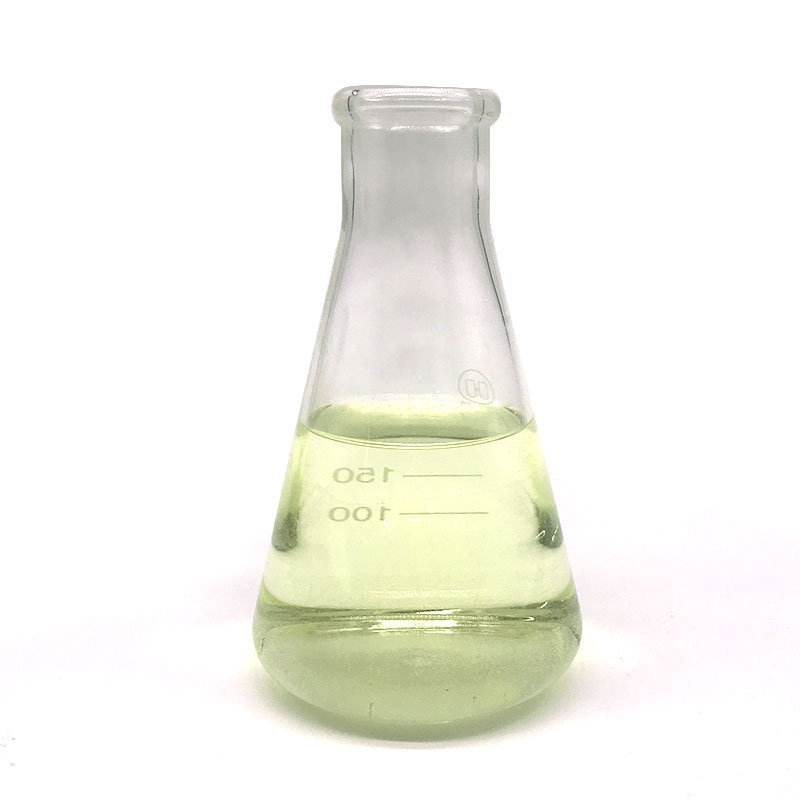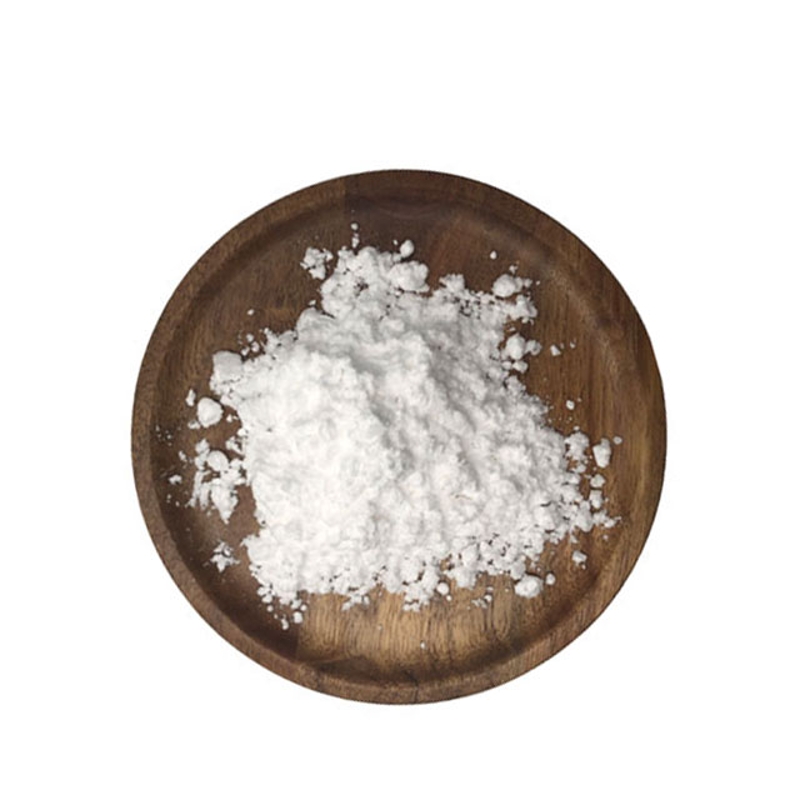How can ADC therapeutics promote ADC drug research and development?
-
Last Update: 2020-02-06
-
Source: Internet
-
Author: User
Search more information of high quality chemicals, good prices and reliable suppliers, visit
www.echemi.com
Wen Cao's chord In July 2019, ADC therapeutics (ADCT), a Swiss biotech company, received an additional US $25 million round e financing, with a cumulative round e financing amount of US $303 million ADCT focuses on the development of antibody drug conjugate (ADC) and non antibody drug conjugate The company's core pipeline covers the fields of hematological system tumor and solid tumor Antibody drug conjugate (ADC) is a kind of drugs that are widely concerned in the field of tumor ADC connects small molecule drugs with biological activity to monoclonal antibody through a chemical link, and the monoclonal antibody acts as a carrier to transport small molecule drugs to target cells The combination of the chemical and antibody drugs makes the ADC drugs have the specificity and stability of antibody drugs, as well as the strong tumor killing effect of small molecule cytotoxic drugs The research of antibody coupling drugs can be traced back to 1980s, but it was not until 2000 that Mylotarg, the first antibody coupling drug developed by Pfizer, was approved by FDA for the treatment of acute myeloid leukemia However, due to the limitations of coupling technology, targeting, effectiveness, etc., the complete antibody coupling drugs were unstable in the blood, leading to the production of lethal toxicity In 2010, Mylotarg was withdrawn from the market in the United States, ADC The prospect of drug research has also been questioned The establishment of ADCT coincided with the emergence of ADC drugs again In 2011, Takeda pharmaceutical and Seattle genetics company developed a new antibody coupling drug adcetris through the transformation of the original ADC technology, which was approved by FDA for the treatment of Hodgkin's lymphoma and systemic anaplastic large cell lymphoma In the same year, ADCT was established as a subsidiary of private equity company auven therapeutics (hereinafter referred to as auven) Since then, in 2013, kadcyla, the first antibody coupling drug for solid tumors jointly developed by Roche and immunogen, has been approved by FDA for HER2 positive breast cancer, and ADC drugs have again set off a research and development boom ADCT has completed a total of 558 million US dollars of financing (disclosed on the official website) since its establishment In general, ADCT's operating capital mainly comes from the founding shareholders auven therapeutics and AstraZeneca, and later from redmile group In terms of time, ADCT obtained a total of US $385 million in financing from 2015 to 2017, which is also closely related to the positive clinical data of ADCT pipeline under research ADCT financing history There are three components in the structure of ADC: antigen-specific antibody, linker (linker), and effective cytotoxic molecule (warhead drug) The properties of the antibody play a decisive role in the key links of ADC entering the target cells, such as the binding of the antibody and the surface antigen of the target cells, the internalization of the antibody, etc There are two characteristics of a suitable joint: 1 The stability of the human circulatory system Before the ADC reaches the target cell, no cytotoxic molecules (warhead drugs) can be released by cracking in the circulatory system, otherwise cytotoxic molecules will be generated; 2 After entering the target cell, the joint needs to be broken quickly and effectively to release the cytotoxic molecules and play their due pharmacological activities Warhead drugs are the core components of ADC drugs, so they need to have high activity Because warhead drugs need to be coupled with antibodies, they must also have certain chemical modifiability and water solubility, so as to ensure that warhead drugs can be carried into cells by antibodies and play an effective role Among the drugs in the field of ADC, most of the cytotoxic molecules are medetonin and otostatin analogues The special feature of ADC drugs developed by ADCT is that it uses a new generation of highly effective pyrrolidine benzodiazepine (PBD) dimer toxins as warhead drugs PBD is a class of antitumor antibiotics, which is formed by two PBD monomers and can bind to the minor groove of DNA, which will persist in DNA PBD, as a warhead drug of ADC, targets tumor cells by McAb, blocks tumor cell replication and makes them apoptosis This kind of drug does not depend on the cell replication cycle, will not distort the DNA double helix structure, and will not break the DNA double strand structure like medetone Therefore, it can effectively avoid the repair mechanism of DNA, and the DNA damage caused by it is difficult to repair, reflecting better cytotoxicity Based on its PBD dimer technology, ADCT has developed a wealth of ADC drug pipelines, involving CD19, CD25, CD22, Axl, DLK1, kaag1 and other targets, covering the field of blood tumors and solid tumors Five of them have been in the clinical research stage, and two pipelines for solid tumors are in the preclinical research ADCT pipeline under development Although ADCT is authorized by spirogen's PBD based core technology, as mentioned before, the activity of ADC drugs is closely related to specific antibodies and connectors Since 2013, ADCT has been seeking suitable targets and specific antibodies through licensing, joint development and other ways to make up for the short board in antibody drugs and connectors In June 2013, genmab and ADCT reached an agreement to jointly develop ADC drugs based on genmab's humax TAC antibody and ADCT's PBD warhead drugs (ADCT-301) In July 2013, ADCT obtained an exclusive license and cooperation agreement from bzl biology for antibody drugs for the treatment of PSMA positive prostate cancer PSMA is a highly expressed cell surface antigen in prostate cancer cells, and the monoclonal antibody targeting PSMA will be an ideal target for ADC (ADCT-401) In November 2013, ADCT entered into a partnership with five prime, from which ADCT will obtain exclusive licenses for five antibody drugs, which target different tumors with undisclosed targets In October 2016, ADCT obtained the patent technology license of glycoconnect and hydraspace from synafix, a Dutch biotechnology company Glycoconnect is a site-specific and stable antibody coupling technology, and hydraspace is an antibody drug coupling enhancement spacer technology In April 2019, ADCT and adagene reached a cooperation ADCT will obtain the license of safebody, an antibody precision masking technology independently developed by Tianyan pharmaceutical Safebody's technology platform can enable the antibody to be specifically activated in tumor tissue and reduce the systemic toxicity of the drug In August 2019, ADCT and freenome reached a cooperation, ADCT will identify patients sensitive to adct-402 treatment through freenome's comprehensive multi-component detection platform In October 2019, ADCT obtained avacta's exclusive license for afimer protein to be used in ADC drug development, and avacta will provide ADCT with optimized afimer binders for three undisclosed cancer targets Since 2014, ADCT pipeline under research has successively entered clinical trials and achieved positive results In 2014, adct-401, an ADC drug for PSMA positive prostate cancer, entered the human trial, which was jointly developed by ADCT and AstraZeneca In December 2015, adct-402, an ADCT drug targeting CD19 for Hodgkin's lymphoma (NHL) and B-cell acute lymphoblastic leukemia (all), was approved for phase I clinical trial In June 2017, adct-402 was identified as an orphan drug for the treatment of R / R DLBCL and MCL (mantle cell lymphoma) by FDA In February 2016, adct-301, an ADC drug developed by ADCT for acute myeloid leukemia (AML), entered phase I clinical trial In October 2016, ADCT obtained the patent technology license of glycoconnect and hydraspace from synafix, a Dutch biotechnology company Glycoconnect is a site-specific and stable antibody coupling technology, and hydraspace is an antibody drug coupling enhancement spacer technology In 2017, ADCT was active in national and international conferences such as AACR, international malignant lymphoma conference, American Hematology Society 2017 annual conference, etc., demonstrating its positive clinical performance in research pipeline These positive data also made ADCT widely sought after by capital From 2014 to 2017, ADCT completed a total of 380 million US dollars financing However, drug development is not always smooth In April 2018, ADCT announced to terminate the development of adct-502 for HER2 positive cancer In September 2019, ADCT once planned to go to the U.S for IPO after the e-round financing, but finally cancelled the listing plan the afternoon before the listing, because the current market conditions are not ideal The prospectus shows that ADC therapeutics has been at a net loss since its inception In 2017 and 2018, ADC therapeutics had net losses of US $89.9 million and US $123.1 million, respectively, most of which were R & D investment and labor costs In 2017 and 2018, the company invested US $85.83 million and US $118.3 million in R & D respectively As of June 30, 2019, ADC therapeutics had a cumulative net loss of $381.9 million Data from US equity home In January 2020, ADCT published the phase II clinical trial results of its pipeline adct-402 for the treatment of recurrent or refractory diffuse large B-cell lymphoma (R / R DLBCL) The data showed that the clinical data of adct-402 had exceeded its main end point, showing single drug antitumor activity and controllable toxicity ADCT is expected to submit the application for biological preparation license (BLA) in the third quarter of 2020 As a promising research and development direction of cancer treatment, ADC drugs have been listed in four antibody coupled drugs worldwide, and nearly 100 new ADC drugs are in clinical trials worldwide Many domestic enterprises, such as baiaotai, Jiangsu Hengrui, Zhejiang Haizheng and Shanghai pharmaceutical, have set foot in it Among them, the ADC drug (bat8001) researched and developed by baiaotai is the first HER2 antibody coupling drug entering clinical stage III.
This article is an English version of an article which is originally in the Chinese language on echemi.com and is provided for information purposes only.
This website makes no representation or warranty of any kind, either expressed or implied, as to the accuracy, completeness ownership or reliability of
the article or any translations thereof. If you have any concerns or complaints relating to the article, please send an email, providing a detailed
description of the concern or complaint, to
service@echemi.com. A staff member will contact you within 5 working days. Once verified, infringing content
will be removed immediately.







